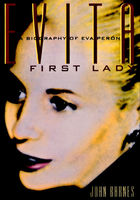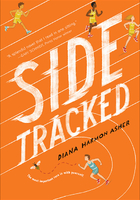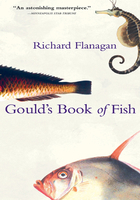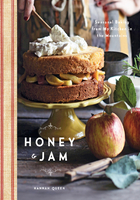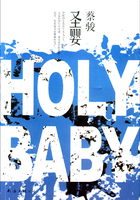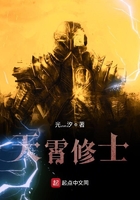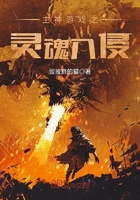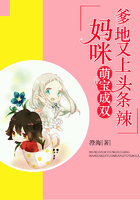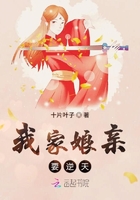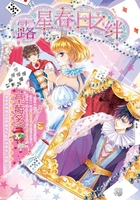ONE SEPTEMBER, WHEN MY MOTHER was newly single and thirty and my sister and I were very small and did not yet go to school, we left Vermont and went to Mexico. We drove there in our little blue pickup truck, trailing my grandparents, who made the trip annually to San Miguel de Allende where they had a winter home. They had purchased a second house for us, large and lovely and made from pink brick, with terraces and a high wall that went all around its perimeter and from which you could see the winding cobblestone roads and the city center, with its massive, baroque Gaudí-esque cathedral and jungle-like central plaza. San Miguel had emerged in the nineteenth century as one of central Mexico's grand and rich colonial cities, full of large and elegant homes, and now it was beginning to attract Americans and Europeans and even Jack Kerouac himself, who wrote home praising the city and its fresh orange juice and agave bars where nobody noticed if you didn't have shoes and passed out on the dirt floor with your hand in your pants. It was a promise that brought a parade of bohemians and artists, and, for my mother, inappropriate suitors, streaming into the city limits.
Now, living in Manhattan, I hear a lot about how artists have been priced out of my neighborhood, and nearby SoHo and Greenwich Village. "How terrible," they say, "that the artists that made this neighborhood so vibrant cannot afford to live here anymore." I am always tempted to remind them that I, their neighbor, in fact make a living as an artist, but I know that I'm not the type of artist that they mean. I am also tempted to tell them what it was like in San Miguel in the 1970s, when the city was teeming with artists living like kings on next to nothing. I can't say for certain that the SoHo of the late 1960s that everyone seems so nostalgic for was similar because I wasn't there. But I can tell them about the parade of men who lived in rented rooms in San Miguel, about their empty canvases and quiet typewriters, their unpaid rents and their empty bottles. And I can tell them about the pained expressions that the men wore when they appeared on our doorstep, always just in time for dinner, and how they sat at our long wooden table and complained and complained and complained about being alone and invisible. If they were really alone, I remember thinking, then they would not be eating all of our cheese.
After dinner they would want to go out, and my mother would walk them to the door and say good-bye because she had two little girls to take care of and couldn't leave us to go to parties or bars. Sometimes, when we woke up, they would be there, asleep on our couches or sitting in our kitchen, waiting for someone to ask them about themselves or give them something to eat or drink. They were almost living with us, helping themselves to our food and our books and our comfortable sofas and chairs and taking up a lot of our mother's time and attention, and when they left, they never said when they were coming back.
They seemed never to add anything to what we had, and often took something of ours away with them. They spent their days at bullfights and at the Gato Negro, the agave bar that women were not allowed to go to, and sometimes they took my mother to long, lazy lunches with lots of wine and beer, for which she almost always paid, on the verandas of the big hotels, or they sat on our terrace and drank and smoked and talked about themselves, their parents, the life they'd left behind. They did everything, it seemed, except produce art.
"He is a painter. We went to RISD together," my mother said about one young, thin man who seemed to be spending most of his time looking into the cut-tin mirror in our hall, fretting over the slow growth of the beard he was attempting. "What do you paint?" I asked him one day. He threw back his head and let out an exasperated groan, then looked around to see if he had an adult audience. My mother and her girlfriend, who were sitting nearby on the floor smoking and poring through an American newspaper that one of them had found, looked up at him. "This kid wants to know," he said to them, holding back his laughter, his arm outstretched toward me, "what I paint." He then let out a snort, a disgusted, angry sound that made me jump. "She's just a little kid," said my mother's friend, putting out her cigarette and giving him a look that made his arms drop to his sides. The skinny man left, not because he felt bad, but because he required, as most of these men did, a constant and agreeable audience.
There was the man who would come and bend our silverware into little animal shapes. We especially liked the fork that became a giraffe with very little effort. He also tried to make a lion and a monkey and something called a manatee out of other metal utensils, but none of them worked out as well as the giraffe, which had made us jump and clap, and all of them ended up, unfinished and unusable, in the kitchen drawer. We were not tall enough to see into the drawer, but we could reach it and open it and would feel around for spoons to eat our melon with at breakfast and, inevitably, stab ourselves with the bent tines and handles that he had left, wondering whether the one, wondrous little giraffe he had wooed us with was worth the trouble. I thought it was; my sister thought it wasn't, so I took the giraffe and put him in my room, where he would be safe.
Mexico was, to children who had only known Vermont winters, a colorful paradise. On our fourth birthday, which was in November, my grandfather sent a man with two donkeys to our door. They wore tiny carved and painted wood and leather saddles and were covered in brightly colored paper flowers. They looked like toys. We thought that they were ours to keep forever, not just for a quick ride around our neighborhood, and we cried when we had to give them back. My grandfather thought that we were behaving like spoiled children and couldn't understand how we had fallen so deeply in love with something that had spent most of the afternoon trying to chew off our feet. We didn't mind that. We were, after all, the same children who had tried to make a pet out of a bitey chipmunk that was a little foamy around the mouth, even though we had seen Old Yeller twice. The man who owned the donkeys didn't want to leave us so unhappy, so he let us keep the paper flowers even though they were very old and beautiful and special to him, which made us stop crying so hard.
That night my mother had a birthday cake for us. We didn't know any other children in San Miguel, so our only guest was the man who had ruined our silverware. He wore a clean shirt and had washed and brushed his hair, and he carried a big bottle of beer and two little clay dishes painted with white flowers. When he saw the paper flowers, he pushed his plate aside and took one of them in both hands and begged us to let him take it apart to see how it was made. We reluctantly said yes, and made him promise to put it back together, but it was still in pieces when we went to bed. The next morning when we came back into the living room, it was sitting on the table, still deflated and broken, next to a glass of wine, and he was nowhere in sight even though we had woken up to the sound of his voice through our bedroom wall. We pushed it back together the best we could and strung it, along with the others, high over our beds. We loved the paper flowers, and when we left that house we would have taken them with us in the back of the truck, even though they would have used up half the space, but we didn't know when we left that we were not coming back.
The next winter we were back in Vermont and started the first grade. Our fifth birthday was spent not riding festooned donkeys through cobblestone streets in warm, dry air, but watching snow fall as our mother split firewood into pieces small enough to fit into our belchy stove. We opened gifts and pushed them aside and made paper flowers out of the tissue that they had been wrapped in, just like in Mexico, and wore them on our heads to dinner.
I went back to Mexico twenty years later to study art. It was the freshly squeezed orange juice, the affordable living, and maybe even the promise of inappropriate suitors that drew me there. I worked illegally as an artist's model—my Spanish was too awful to find work as a waitress or guide—and studied silver-casting and jewelry-making. I even took a class on making those big paper flowers that I had loved so much, and filled my little house with them, stringing them on the lines that were on my roof, meant for laundry. My roommate, Daniel, and I threw parties and invited everyone we met that looked interesting. One thin, blond girl in an expensive-looking leather coat came to one of these dinners. She seemed incapable of a smile. She was, it turned out, an artist from New York. From SoHo. She seemed very serious for someone who was only twenty-one and clearly was experienced at things like parties in other countries, in strangers' houses. I was sitting next to her when she tried to light a cigarette. I told her politely that we smoked only on our roof, never inside, and pointed to the door that led to the spiral staircase and our rooftop, from which, I added, you could see most of the city. She scowled and put her lighter away. "I came to Mexico because it is a lawless country," she announced, "not to be told what I can and cannot do." She wasn't looking at me directly when she said this, which almost made it worse, and then she was gone with her little pack of thin, sleek friends within ten minutes. Daniel made fun of her for the next four months. His impression was dead-on by Christmas. I would stick my head in the bathroom when he was in the shower to remind him that he was using all of our hot water, and he would shout back, "I came to Mexico because it is a lawless country!" and we would laugh at the thin little blond artist who actually thought that there was a place in the world where everyone could do exactly what they wanted, just because they were an artist.
To make paper flowers you'll need a few rolls of green floral tape; a few long sticks (2'–3' [61–91 cm] long with a diameter of about ?"–?" [6–12 mm]); some large cone-style coffee filters; and, if you like, paint or ink to embellish your petals and green crepe paper for leaves. To begin, open up your coffee filters along their side and bottom seams, then cut them in half along the fold. Trim the corners on the wider top of each piece. Make small pleats with your fingers along the bottom edge, pressing the creases with your fingers. Wrap the filter around your stick, about an inch from its tip, maintaining the creases while you work. Stretch and wind your floral tape around the wrapped petal several times; leave your tape attached as you continue to add more petals. Continue to add petals, as few as three or four and as many as 40 will give you flowers of varying sizes and fullness. Wrap tape down and around your "stem" carefully, preserving its natural shape wherever possible, until you reach its bottom tip. Add leaves or other flowers to your stem, if desired. To make leaves (optional), cut leaf shapes from a piece of green crepe paper, and fold them in half lengthwise to make a crease. Wrap the bottom edge of your leaf around your stem and secure by wrapping your tape around it. Once you have everything attached to your stem, spread your coffee filter petals apart and trim the edges, if necessary. You can add some color by painting the petals with a brush or dipping the tips into water that has ink or paint added to it. To create an ombré effect, dampen the petals with water before brushing on paint.
As hard as I tried to avoid unsuitable suitors, of which there seemed to be a wide selection, I fell hard for perhaps the biggest cad in San Miguel. His name was Beso, and he was a street dog, literally, who ranked near the top of the local pack. I didn't know it when I fell for him, but he was an infamous scallywag. Beso attached himself to a different blond graduate student with a comfortable apartment every term, and for the fall/holiday term of 1993, that student was me. He was matted and flea-infested, yet tall and handsome with deep, somber eyes. Like the girls before me, I tried to take him in and make him clean and good and house-worthy, convinced that I could change him, fix him, that what we had together was different, special. But he preferred to maintain the freedom to roam, dusk to dawn, with an imposing pack of feral dogs that was known citywide.
Beso didn't live with me. He was a visitor, scratching at my heavy wooden door in the early, early morning, smelling of trash and street and a night's worth of carousing. I would always let him in, give him a little scold, and let him follow me back to bed. I would tell him he could sleep only at the foot of the bed, but when I woke up he was always next to me, his head tucked under my chin. My weakness for him, and my ancient and drafty stone house, made it impossible to push him away. He would have his breakfast with me then walk me to the studio or work, where he would wait outside my classrooms and flirt with the girls or beg for pastry at the canteen. He loved taking long naps in the protected gardens of the old hacienda that was our campus. Afterward, he would come back home with me for a good meal of chicken and rice and a small siesta, but he would always want out by dusk and be gone again until early morning. I would try to convince him to stay, to keep him with me for company in the evenings, when I had a fire going and felt especially far from home, but he would grow restless and always leave at dusk.
I also happened to be dating someone at the time, a smarmy, handsome man from New Zealand who I was pretty sure had a very serious girlfriend waiting for him at home. Malcolm was a mountain climber and a photographer, but I had never seen him do either of those things. He seemed to own a lot of cameras and ropes, but mostly they were just gathering dust in San Miguel. He claimed to be waiting for the climbing season to begin in South America, a date that depended on weather conditions. He and Beso didn't trust each other at all. "Would it be possible for him to stink more profusely?" Malcolm asked me in the middle of the night, when they were both sleeping in my bed, though neither had actually been invited to do so. This, coming from a man who had been wearing the same pair of wool socks since I met him weeks earlier. "No," I replied, "I don't think so." Beso hated him back. When I put two plates full of dinner for Malcolm and me on the coffee table in front of the fireplace one evening and went back to the kitchen for wine, I thought I heard the scraping of silverware against pottery. It didn't look like anything had been touched while I was gone—for a street dog Beso was surprisingly respectful of my food and belongings—but when Malcolm turned on the light above us and began eating, I realized that the piece of chicken on his plate had been licked thoroughly, the chili, orange, and butter glaze that I had spent two hours reducing over low heat and had carefully spooned over our plates was gone from his. Mine was clearly intact. "I think I forgot to dress your chicken, Malcolm," I said, getting up to fetch more before he realized what had happened. "It's all right," he said. "I prefer simple, whole foods anyway. Heavy sauces slow me down." I looked over at Beso, sleeping like a shaggy lion in front of the fire, and could see that he agreed.
Malcolm left San Miguel without really saying good-bye. We were walking through the market on what I thought was at least a few days before he was heading south. He bought me a tiny little raccoon carved from wood and asked me to hold it while he took my picture from twenty feet away, then he turned and walked into the crowd and was gone. Daniel was waiting for me at home, and we sat on our roof and drank beer until it was late, and I went to bed not knowing who would be scratching on my door in the morning. I woke up at dawn to the sound of Beso pushing his nose into my mail flap. I opened the door for him, and he followed me back to bed. When I finally got up for coffee with Daniel, I stepped on a pile of tiny splinters of wood; the little wooden raccoon that Malcolm had given me had been chewed into bits and left in a small heap. Beso looked very pleased with himself. I gave him the half chicken in the fridge and put some ice cubes in his water bowl, his favorites.
On the day I left the city for good, Beso stuck to me like never before. I think he knew all the signs from all the girls before me and thought maybe one of us would take him back with us to wherever it was that we had come from. But I was going to be traveling for many more months and then returning to a cabin and a job in a California state park where dogs were not allowed, so I could not take him with me. I missed him painfully for more than a year, feeling as though I had let him down, broken his heart.
A few months after I returned to California, I got a letter from Malcolm, who had finally made it back to San Miguel after a year of climbing in Patagonia. The first two pages were minute accounts of his climbing expeditions, full of a language I didn't understand, and the next-to-the-last paragraph was about Beso. He was, according to this report, living like a king in the arms of a pretty pottery graduate student named Lucia, whom we had both known. She had just taken a job as a teacher at the Belles Artes, and so would never be leaving the city, at least not in Beso's lifetime. Then there were a few sentences about why it had been too hard to say good-bye to me, and how he had hoped I would still be there when he came back through but could not have known how long that would be. He was going back to New Zealand and to his girlfriend, whom he had grown close to through letters during his absence and harrowing, valiant climbing expeditions, and they would likely be married by Christmas.
I sat for a long time with this letter in my hands, feeling freshly jealous and thinking of our time together and wondering whether Beso thought of me often, or at all. The only thing I could find consolation in was knowing that Lucia was a vegetarian.
Just after I was married (to an appropriate suitor) and had moved to New York City, I stumbled across Lobo on the website of an organization called Stray from the Heart, which places homeless dogs in loving homes. Many of their dogs come from Quito, Ecuador, where a veterinarian named Linda literally picks up animals off the streets, administers necessary care (in Lobo's case, tending to a badly broken hip), and finds them new homes in the United States. A few months later, I stood in the baggage area of LaGuardia airport. Fifteen years after I had said good-bye to Beso at the San Miguel bus station, I was saying hello to Lobo, who was looking up at me from his dark crate with an expression similar to the one that Beso had worn the day I had left him. It was a face formed by decades of natural selection, through countless generations, an expression that conveyed an intelligence and a charm that could both recognize the source of a warm meal and a bed and find a way, instantly, to win her heart.

